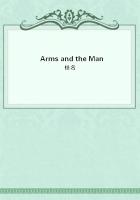Curious discrepancies exist between the German and the American observers with respect to the direction of the error below and above the point of indifference -- differences perhaps due to the fatigue involved in the American method.The Germans lengthened intervals below it and shortened those above.With seven Americans experimented on by Stevens this was exactly reversed.The German method was to passively listen to the intervals, then judge; the American was to reproduce them actively by movements of the hand.In Mehner's experiments there was found a second indifference-point at about 5 seconds, beyond which times were judged again too long.Glass, whose work on the subject is the latest (Philos.Studien, IV.423), found (when corrections were allowed for) that all times except 0.8 sec.were estimated too short.He found a series of points of greatest relative accuracy (viz., at 1.5, 2.5, 3.75, 5, 6.25, etc., seconds respectively, and ( thought that his observations roughly corroborated Weber's law.As 'maximum' and 'minimum' are printed interchangeably in Glass's article it is hard to follow.
With Vierordt and his pupils the indifference point lay as high as from 1.5 sec.to 4.9 sec., according to the observer (cf.Der Zeitsinn, 1868, p.112).In most of these experiments the time heard was actively reproduced, after a short pause, by movements of the hand, which were recorded.Wundt gives good reasons (Physiol.Psych., II.
289, 290) for rejecting Vierordt's figures as erroneous.Vierordt's book, it should be said, is full of important matter, nevertheless.
Physiol.Psych., II.286, 290.
Philosophische Studien, I.86.
Mind, XI.400.
Loc.cit.p.144.
Op.cit.p.376.Mach's and Buccola's figures, it will be observed, are about one half of the rest --
sub-multiples, therefore.It ought to be observed, however, that Buccola's figure has little value, his observations not being well fitted to show this particular point.
Estel's figures led him to think that all the multiples enjoyed this privilege; with Mehner, on the other hand, only the odd multiples showed diminution of the average error; thus, 0.71, 2.15, 3.55, 5, 6.4, 7.8, 9.3, and 10.65 second were respectively registered with the least error.Cf.Phil.Studien, II.pp.57, 562-565.
Cf.especially pp.558-561.
Wundt: Physiol.Psych., II.287.Hall and Jastrow:
Mind, XI.62.
Mehner: loc.cit.p.553.
"The number of distinguishable differences of speed between these limits is, as he takes care to remark, very much larger than 7 (Der Zeitsinn, p.137).
P.19, § 18, 112.
I leave the text just as it was printed in the Journal of Speculative Philosophy (for 'Oct.1886') in 1887.Since then Münsterberg in his masterly Beiträge zur experimentellen Psychologie (Heft 2, 1889) seems to have made it clear what the sensible changes are by which we measure the lapse of time.When the time which separates two sensible impressions is less than one third of a second, he thinks it is almost entirely the amount to which the memory-image of the first impression had faded when the second one overtakes it, which makes us feel how wide they are apart (p.29).When the time is longer than this, we rely, he thinks, exclusively upon the feelings of muscular tension and relaxation, which we are constantly receiving although we give to them so little of our direct attention.These feelings are primarily in the muscles by which we adopt our sense-organs in attending to the signals used , some of the muscles being in the eye and ear themselves, some of them in the head, neck, etc.We here judge two time-intervals to be equal when between the beginning and end of each we feel exactly similar relaxations and subsequent expectant tensions of these muscles to have occurred.In reproducing intervals ourselves we try to make our feelings of this sort just what they were when we passively heard the interval.
These feelings by themselves, however, can only be used when the intervals are very short, for the tension anticipatory of the terminal stimulus naturally reaches its maximum very soon.With longer intervals we take the feeling of our inspirations and expirations into account.With our expirations all the other muscular tensions in our body undergo a rhythmical decrease;
with our inspirations the reverse takes place.When, therefore, we note a time-interval of several seconds with intent to reproduce it, what we seek is to make the earlier and later interval agree in the number and amount of these respiratory changes combined with sense-organ adjustments with which they are filled.Münsterberg has studied carefully in his own case the variations of the respiratory factor.They are many; but he sums up his experience by saying that whether he measured by inspirations that were divided by momentary pauses into six parts, or by inspirations that were continuous; whether with sensory tension during inspiration and relaxation during expiration, or by tension during both inspiration and expiration, separated by a sudden interpolated relaxation; whether with special notice taken of the cephalic tensions, or of those in the trunk and shoulders, in all cases alike and without exception he involuntarily endeavored, whenever he compared two times or tried to make one the same as the other, to get exactly the same respiratory conditions and conditions of tension, all the subjective conditions, in short, exactly the same during the second interval as they were during the first.Münsterberg corroborated his subjective observations by experiments.The observer of the time had to reproduce as exactly as possible an interval between two sharp sounds given him by an assistant.The only condition imposed upon him was that he should not modify his breathing for the purposes of measurement.















